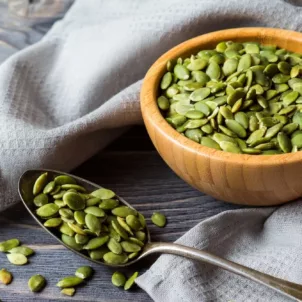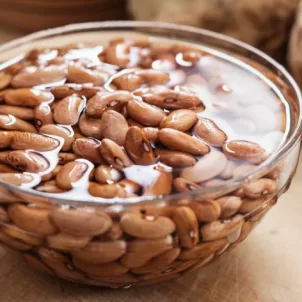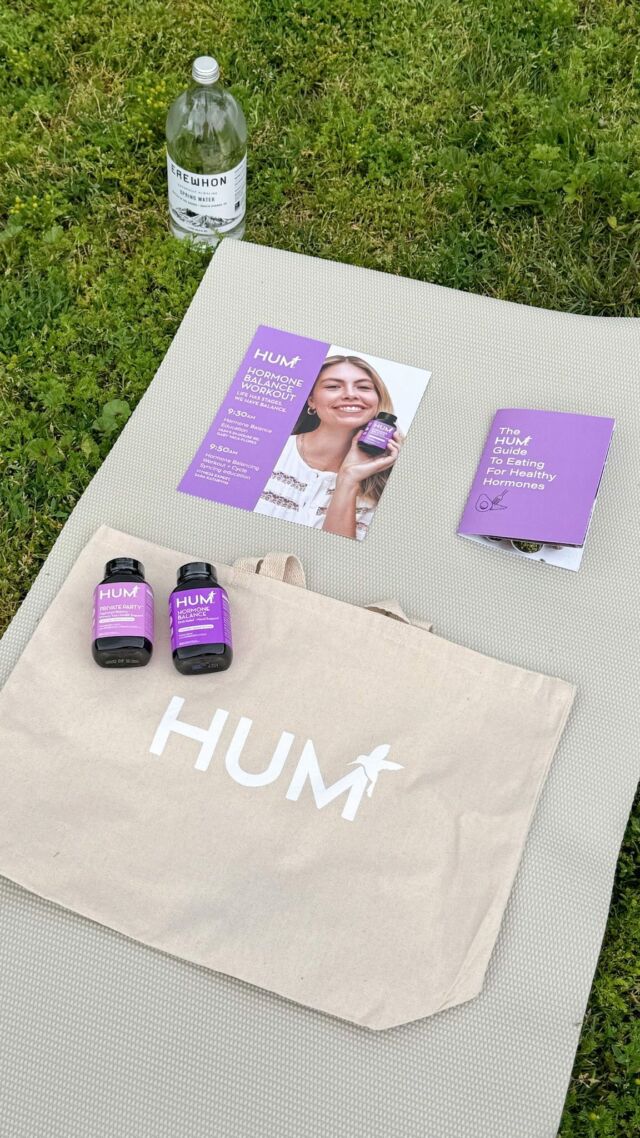Is Oat Milk Healthy? Here’s a Dietitian’s Verdict
Jessica Bippen, MS, RD, sheds light on why oat milk has become such a popular plant-based milk for latte lovers everywhere. But is oat milk good for you? Plus: a homemade oat milk recipe.
It’s no longer a “special request” for your neighborhood barista to fulfill. Oat milk is in increasingly high demand—you can swap it for dairy milk or almond milk for a creamier latte, or you can blend it in your smoothies, or even stir it into your oatmeal. But how healthy is oat milk, really: For example, is there oil in oat milk, and what can you expect from the calories in oat milk? Keep reading for a closer look at its nutrition facts compared to other plant-based milk options.
Why Is Oat Milk So Popular?
Oat milk is the hottest coffee-shop specialty. Why? Simply put, it’s delicious. It’s thick, creamy, and froths up like full-fat milk in a latte or cappuccino. When it comes to almond milk vs. oat milk, there’s no competition. It outperforms basically all other plant-based milks out there for its sublime froth factor. And we all know the froth is the best part of a latte!
Aside from the taste, the oat-milk craze has really taken off due to a genius marketing strategy from Swedish company Oatly. Oatly started selling their oat milk to coffee shops back in 2016, creating a sense of exclusivity since the milk wasn’t widely available in grocery stores.
Oatly is now sold in grocery stores across the US, and other companies are jumping on the trend. Large corporations such as Quaker and Silk even dipped into the oat-milk craze with product launches in early 2019.
Nutritional Value of Plant-Based Milks
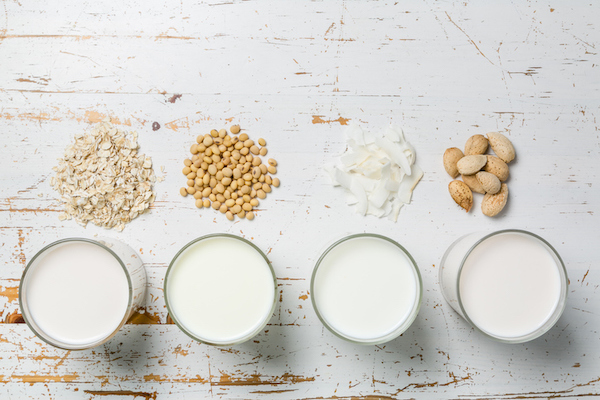
Before determining how healthy oat milk is for you, let’s first take a look at its nutritional value compared to other plant-based milk. We’ll walk you through the nutrition facts of oat milk vs. almond milk vs. cashew milk vs. soy milk.
Here’s how one cup of the most popular plant-based milks stack up. (Keep in mind that nutritional information and oat milk calories can vary based on the brand.)
Oatly Oat Milk
- 120 calories
- 5 g fat (0.5 g saturated fat)
- 16 g carbs
- 2 g dietary fiber, 1 g soluble fiber
- 7 g sugar
- 3 g protein
Califia Farms Almond Milk
- 35 calories
- 3 g fat (0 g saturated fat)
- 1 g carbs
- 1 g dietary fiber
- 0 g sugar
- 1 g protein
Silk Cashew Milk
- 25 calories
- 2 g fat (0 g saturated fat)
- 1 g carbs
- 0 g dietary fiber
- 0 g sugar
- <1 g protein
Silk Organic Soy Milk
- 80 calories
- 4 g fat (0.5 g saturated fat)
- 4 g carbs
- 2 g dietary fiber
- 1 g sugar
- 7 g protein
Note: Most plant-based milks are also fortified with vitamins like D, A, B12, calcium, and riboflavin, another B vitamin. If these nutrients are key factors in your selection of plant-based milk, be sure to check the label.
Oat Milk Nutrition
Here’s a deeper dive into oat milk’s nutrition facts.
Macronutrients
Here’s what you should know about oat milk’s protein content: As you can see, oat milk contains only three grams of protein. It’s less than the seven grams of protein in soy milk, but slightly more than milk made from almonds or cashews.
Otherwise, oat milk is pretty comparable to the other top dairy-free milk substitutions like almond and cashew. However, one disadvantage is that it’s much higher in carbohydrates.
Does oat milk have soluble fiber? Although oats are high in fiber, after processing them into milk, there isn’t much left. For that reason, oat milk contains only about two grams of fiber, which is similar to soy and almond milks. However, it does have the benefit of containing beta-glucans, a type of soluble fiber that may reduce the risk of heart disease and support healthy cholesterol levels. Its calcium and D profile also makes it excellent for bone health.
Oils in Oat Milk
Most of the oat milk on the market includes canola oil (aka rapeseed oil) as an ingredient. Canola oil is a low-quality omega-6 oil that’s also inflammatory, so rapeseed oil in oat milk isn’t an ideal ingredient.
While we need omega-6 oils, there’s a delicate ratio of omega-3s to omega-6s, and most Americans are getting much more omega-6 oils than necessary to keep that balance.
In other brands, you might notice another oil in oat milk: sunflower oil. Is sunflower oil in oat milk bad for you? Well, it’s complicated. Sunflower oil is high in oleic acid, a healthy fat that can have anti-inflammatory effects on people with autoimmune conditions or even with wound healing. The thing is that oat milks that have sunflower oil as an ingredient are often oat milk blends. While sunflower oil is a beneficial ingredient for you on its own, the oat milk blend might have a longer ingredient list of less healthy ingredients to add flavor. So you may be best off finding an unsweetened oat milk…which brings us to the added sugar.
Sugar Content
Another thing to be aware of is the sugar content. Oatly’s original has seven grams of naturally occurring sugar from the oats. The other varieties of Oatly and other brands like Elmhurst and Pacific Foods have added sugar, with Pacific Foods packing in a whopping 19 grams of sugar.
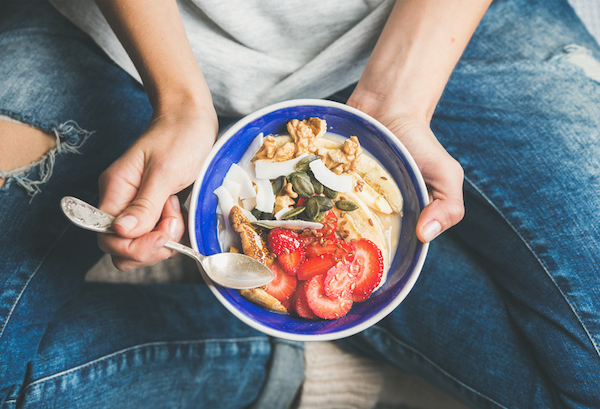
Is Oat Milk Bad For You?
On top of the carb, oil, and sugar content noted above, there’s something else you should take into consideration before switching to store-bought oat milk.
Testing from the Environmental Working Group (EWG) shows that oats are often contaminated with glyphosate, the active chemical in Roundup herbicide. Yikes!
Here’s the deal: Many farmers spray non-organic oats with Roundup before harvest, which can then contaminate the oats and oat products. The World Health Organization considers glyphosate a probable carcinogen, so it’s not something you want to expose yourself to (let alone eat) and that’s one of the potential oat milk dangers.
The good news? Tests show that organic oats are less likely to be contaminated. Some companies go as far as having their oats pass through third-party testing to guarantee their oats don’t contain glyphosate. Fortunately, Oatly is one such company that guarantees customers that they’re purchasing oat milk without glyphosate.
In order to steer clear of any glyphosate contamination, look for oat milk that’s certified organic and glyphosate-free. Most companies will pride themselves on this fact if they have these certifications.
Lastly, your oat milk should ideally consist only of oats and water—and maybe some salt and fortification—but that’s it. Yet realistically, there aren’t many options available with this basic ingredient list.
Homemade Oat Milk Recipe
To make sure you’re drinking the healthiest oat milk possible, consider making it yourself. Thankfully, this oat milk recipe is super simple.
The standard ratio for this recipe is a half cup of oats to two cups of water. However, you can vary it depending on how rich and creamy (or thin) you like your milk.
PREP: 30 min
COOK: 5 min
SERVES: 4
INGREDIENTS
- 2 cup organic steel-cut or rolled oats
- 4 cups water
- Pinch of salt
SUPPLIES
- Bowl
- Blender
- Nut-milk bag or cheesecloth
INSTRUCTIONS
- Start by soaking your oats in water for at least 30 minutes.
- Drain and rinse to remove any sticky coating that forms.
- Once the oats are fully soaked, blend the oats with water and salt.
- Strain using a nut-milk bag or cheesecloth.
So, Is Oat Milk Healthy After All?
While oat milk is delicious in a latte here and there (though it will definitely up the price tag), you’re better off opting for another plant-based milk in your smoothie, or if you’re drinking it by the glass.
If you can, learn how to make oat milk yourself. Otherwise, do yourself a favor and always read the label. Opt for organic oat milk with minimal ingredients, and if possible, no added sugar or unhealthy additives.
Homemade Oat Milk Recipe
To make sure you’re drinking the healthiest oat milk possible, consider making it yourself. Thankfully, this oat milk recipe is super simple.
The standard ratio for this recipe is a half cup of oats to two cups of water. However, you can vary it depending on how rich and creamy (or thin) you like your milk.
30 min
5 min
4
INGREDIENTS
- 2 cup organic steel-cut or rolled oats
- 4 cups water
- Pinch of salt
SUPPLIES
- Bowl
- Blender
- Nut-milk bag or cheesecloth
INSTRUCTIONS
- Start by soaking your oats in water for at least 30 minutes.
- Drain and rinse to remove any sticky coating that forms.
- Once the oats are fully soaked, blend the oats with water and salt.
- Strain using a nut-milk bag or cheesecloth.
So is oat milk healthy after all?
While oat milk is delicious in a latte here and there, you’re better off opting for another plant-based milk in your smoothie (or if you’re drinking it by the glass).
If you can, learn how to make oat milk yourself. Otherwise, do yourself a favor and always read the label. Opt for organic oat milk with minimal ingredients, and if possible, no added sugar or unhealthy additives.



